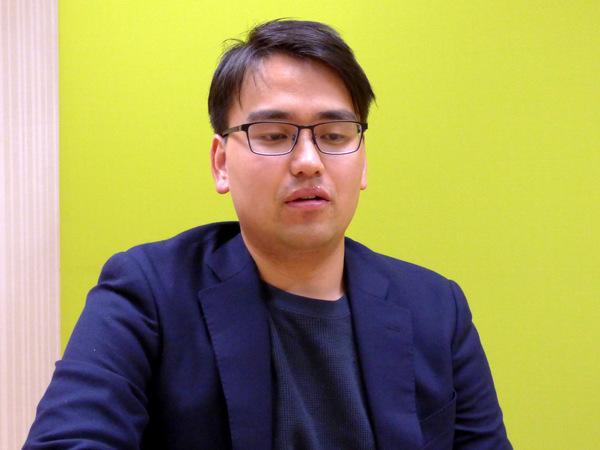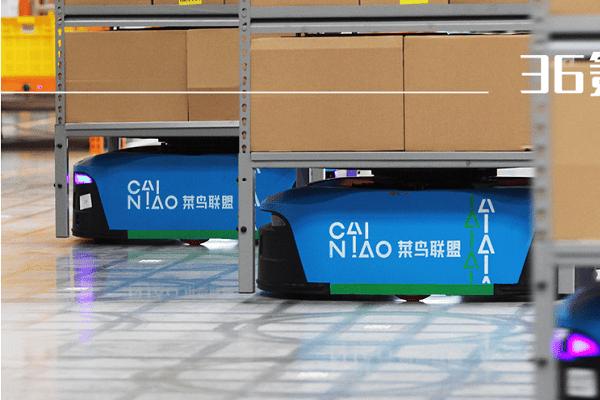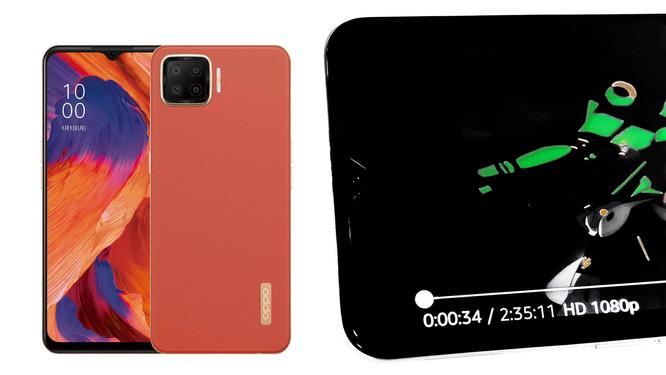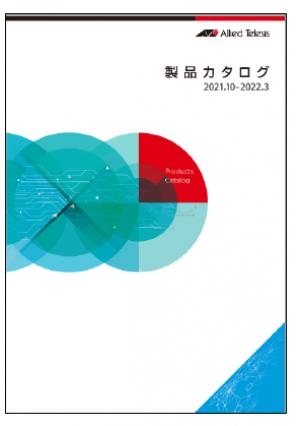It is often said that cloud services, especially many SaaS that do not require development and can be used immediately, have the power to extend the power of IT, which was only for large companies, to small and medium-sized companies. However, the reality of local SMEs seems to be far from ideal.
He was the writer of "I couldn't get off the stairs for three years after starting a SaaS introduction support company in a rural area" that was published in the note and touched the hearts of many people. We talked to Mr. Akihiro Iryo, who is working hard to continue. What emerged was a large gap between the image of SMEs envisioned by companies that develop and sell SaaS in Tokyo and the actual situation.
Continued Masataka Iryo
Jump into the world of IT after a youth longing for a charismatic manager
It is said that Mr. Iryo has longed for craftsmen since he was a child. What a good craftsman produces is rooted in life, and there is functional beauty there. Also, in Japan, which has grown as a technology-oriented country, excellent craftsmen were also excellent managers. It is said that he read a lot of the stories of successful people who went from engineer to manager like Mr. Soichiro Honda.
"I had a shocking encounter when I was 16 years old. By reading one book, I became devoted to business administration," (Mr. Iryo).
The book is "Seven-Eleven's" Business Studies from the Age of 16 "-The Work of" Real "Teached by Toshifumi Suzuki (written by Akira Katsumi)." Mr. Iryo at that time was exactly 16 years old. He felt destined when he met, and was fascinated by the management philosophy of Toshifumi Suzuki, then chairman and chief executive officer of Seven & i Holdings.
"I longed to become Mr. Suzuki's right arm someday, so I went to the Faculty of Business Administration without hesitation at university. When I graduated, I thought that IT knowledge was necessary to support future managers, so I got a job at NTT Data Intramart. (Mr. Iryo)
Intramart is in the position of NTT DATA's in-house venture, and was a good choice in terms of combining the stability of large companies with the speed of ventures. The biggest difference from general ventures is that they developed their business under a big sign called NTT DATA. Immediately after his employment, Mr. Iryo gained experience in charge of many super-major clients.
"Isn't it around 2010 that I started to feel the new trend? SaaS started to spread in earnest. I felt a sense of crisis that the old IT industry would be killed if it stayed the same. (Mr. Iryo)
He changed jobs and started a business, believing in the power of SaaS, but ...
Mr. Iryo clearly uses the words "cloud" and "SaaS" properly. The word cloud is too broad, and as you can see from the existence of the "lift and shift" technique, simply changing the location of a conventional system can be described as a cloud. Mr. Iryo paid particular attention to SaaS, which can be used as a business system as soon as an email address and credit card number are registered, rather than the cloud in general.
"I focused on the ease of SaaS, not the cheapness. Software and IT tools that previously had to be developed by hiring SIers or hiring engineers have been democratized so that they can be used immediately by business owners. "(Mr. Iryo)
Large companies can ask SIers to build their own systems, but SMEs don't have that much capacity. But with SaaS, even small businesses can benefit from IT. Betting on that possibility, Mr. Iryo changed his job to freee, one of the SaaS vendors. He wanted to help small businesses and craftsmen with freee, which he advocates "making small businesses the leading role in the world."
"However, freee was not easily adopted by small and medium-sized enterprises. Especially in rural areas, even if we hold seminars, we can hardly get a contract. While thinking about the reason, I have to go to rural areas myself. I came to think that I couldn't really provide local support. And I moved to Nagano prefecture and made Tsuzuku Co., Ltd. "(Mr. Iryo)
I chose Nagano prefecture because it was my wife's hometown. As the phrase "a friend who ate the same pot of rice" says, if you put your feet in the countryside and work in the same environment, you should be able to hear the story. It was an emigration with that in mind. But the reality was much harsher than I had imagined.
"There was a world where we had to teach from such a level as how to turn on the computer, how to adjust the volume of the tablet, etc. Even if we preached how to improve the efficiency of work using technology, it would be interesting. There were few people. "(Mr. Iryo)
Paper documents, faxes, and telephones are commonplace in local SMEs. And when it comes to business negotiations, we visit customers and hold them face-to-face. In response, Mr. Iryo brought video chat to support after the introduction. He thought he would feel free to get support more often than he would visit, which backfired. He was told he wouldn't come to the customer and listen. The common sense of business premised on IT did not work in rural areas.
Forcibly created blank time can afford to reset feelings and return to the origin
Here, Mr. Iryo mentioned the word "mind share" as one of the keywords for introducing IT. It's a term that describes how positive a target user is about a product and how much of their thinking is motivated to introduce the product.
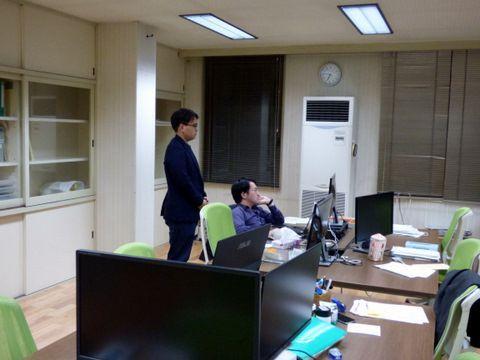
"When I was at freee, I was talking about which one could get a higher mind share, freee or money forward, but I realized that it didn't make sense in rural areas. I ran a small business in rural areas in the first place. What occupies the hearts of those who are doing this is whether they can pay their employees this month, whether they can maintain their business performance next month as well as this month, what time they will return today and what they will eat. It's all about the immediate future. Improving business efficiency is only at the edge of my heart, and IT-related matters are only a small part of that. "(Mr. Iryo)
The spread of SaaS in rural areas may be an unreachable phantom goal, is it worth doing? Such feelings became stronger. The number of customers does not increase and savings are declining. I wondered if we should target urban companies with high IT literacy in order to continue our business. Such thoughts swirled around in my head, and gradually I could only think of immediate management. Mr. Iryo himself was one of the owners of local small and medium-sized enterprises who could not afford to feel.
And finally, the day will come when my feelings will break. One day when complaints continued, Mr. Iryo could not go to work and was absent from his company without permission. Mr. Iryo wrote about his time in his own note.
I was really worried. Is it necessary to spread SaaS in rural areas until suffering? If you return to Tokyo, you may be able to "escape" from the market where you have to teach how to turn on your computer as it is now and how to adjust the volume of your iPad.
(Omitted)
As long as I am a business owner, the pressure to feed my employees was tremendous. I was desperate to think about money whether I slept or woke up. At some point, the purpose of the company was to make money in order to feed it, which was embarrassing and miserable.
And that day has come. The next week after three pretty terrible customer complaints, I couldn't go down the stairs in the morning. For the first time in my life, I was absent without notice. I couldn't go to my company.
"Three years after starting a SaaS introduction support company in a rural area, I couldn't get off the stairs" (second part)
Mr. Iryo was mentally forced to take a break from his work. However, he said that he used this time to get back to his own starting point as to why he started his own business.
"I was obsessed with the idea that I had to make money for my employees. I decided to reset it and return to the starting point when I started my business. There is a sense of crisis that SaaS will not spread in rural areas as it is. I remembered my love for SaaS. Money should have come as a result, not for making money. "(Mr. Iryo)
In the first place, I seriously thought about why SaaS could not be sold in rural areas.
Returning to the starting point, Mr. Iryo changed the direction of his business. No, I went back to the origin and corrected the direction, so maybe I just returned to the original direction. Anyway, it caused a drastic change such as quitting new business. Mr. Aida, an employee, said, "The goal I'm aiming for hasn't changed, but my approach has changed by about 150 degrees."
Continued office
"The image of a SME that a SaaS vendor thinks is too far from the actual management site of a local SME. SaaS can be paperless and reduce clerical work time," said a sales representative. People don't know the payment site using paper before becoming paperless. You can't take a mind share without knowing it. For example, the word cash flow is the sales of a SaaS vendor in Tokyo. There is a difference between what the person in charge thinks and what the owner of a small business thinks. Even though the company account has only 5 million yen, the employee's salary and purchase will be charged 6 million yen. How to survive? That's the real cash flow of small and medium-sized enterprises. It's about the level of work being reduced by the introduction of IT. "(Mr. Iryo)
There is the term Product Market Fit (PMF). For example, it's a term used to think about how freee fits the needs of the target market. However, Mr. Iryo says that PMF makes no sense at all in local SMEs, as is the mind share on a product-by-product basis. We must work together to create a market for the entire SaaS category, not for each product. In other words, he says that we must work at the category market fit (CMF) level.
The keywords I'm focusing on right now are case studies, motives, and mind sharing. The most effective of these is the case. However, there is a device unique to Mr. Iryo in the method of introducing cases. He uses SaaS to showcase successful customer cases, but keeps the introduction of products and features to a minimum. This is a referral method that is almost the opposite of the case study created by the vendor. As mentioned earlier, small business owners do not consider SaaS by product. Somehow, I understand that it is a "successful case in IT" and pay attention to its effect. Since IT is a tool after all, this may be a straightforward approach as an approach.
"For example, one of the successful cases of our consulting is a tofu shop called Ryokokuya Tofu Shop. I use kintone and freee, but the manager who knew this case said," We also have kintone. I didn't get an inquiry saying "I want to introduce it." I get an inquiry saying "I want to do the same thing as that tofu shop." I don't want to use the same tool, I want to achieve the same result. "(Mr. Iryo)
Taking the case of Ryokokuya Tofu, Mr. Iryo also explained the motivation for small and medium-sized enterprises to use SaaS. The store is a tofu store that has continued for three generations, but as the number of orders increases, the amount of clerical work increases, and even though it is a tofu store, it has fallen into the dilemma of not being able to concentrate on making tofu. This is a common issue for local SMEs that handle paper and fax paperwork. Of course, office work is not the only concern. Customer management, purchasing, cash flow, part-time employee management, et cetera et cetera.
"It is only when we have a strong motivation to want time to develop new products and to provide products that meet the needs of our customers, that we can turn our attention to operational efficiency. There are many stakeholders for each issue. So, what we helped was to improve the efficiency of office work using SaaS. Starting with this, you may start thinking that other things can also be made more efficient, but anyway, it is a strong motivation. Without it, we wouldn't be able to stand at the starting point. "(Mr. Iryo)
As mentioned above, Mindshare is a story that we must first obtain Mindshare in a wide range of genres such as SaaS instead of product units, and eventually business efficiency improvement using IT.
The future necessary to spread SaaS in rural areas with love
As far as I can tell, it seems like all the challenges. However, Mr. Iryo once reset his feelings and seemed to find out the direction he should go.
"I like SaaS, so I wanted local SMEs to use it, so I came to Nagano and started a business. It's like doing a soil survey. What is local SME management? I have been investigating while experiencing things for myself. What I found out is that it is not the technology that is important, and that we should work on improving the soil so that SaaS will be accepted. "(Mr. Iryo)
As a concrete initiative, it is said that it is now trying to raise the level of small and medium-sized enterprises by using the Chamber of Commerce as a window. The 515 Chambers of Commerce across Japan are one of the few nationwide organizations that can approach SMEs. Mr. Iryo is an advisor to the Japan Chamber of Commerce and Industry, which organizes the Chamber of Commerce and Industry, and will hold seminars at various chambers of commerce and industry upon request.
"Seminar is not something that gorgeous words such as AI and IoT are flying around. In many cases, the government gives a subsidy along with such words and the seminar is held, but it is true that the AI seminar How many business owners will come into contact with AI later? How many people have tried flying drones after a seminar on local drone utilization? As I say many times, these cutting-edge technologies are in the local market. It doesn't fit at all. "(Mr. Iryo)
At the same time as holding seminars tailored to the local market, we have begun efforts to forcibly raise literacy. It is said that the Japanese Chamber of Commerce has introduced Chatwork, and Chatwork is always used to contact Mr. Iryo.
"I'm trying to get used to SaaS little by little from the place where there is little resistance to chat" (Mr. Iryo)
I would like to dream of a day when SaaS will spread to small and medium-sized enterprises nationwide and the efficiency of Japanese business as a whole will improve due to the efforts of Mr. Iryo, who takes very steady activities and steps step by step with a very small stride.

